Field Violet
- Violet (Violaceae family):
- Viola arvensis L.
- EPPO code:
- VIOAR
- Other names:
- Field pansy, wild pansy
Species information
- Lifecycle:
- Annual, winter annual.
- Propagation:
- Reproduces by seed.
- Emergence:
- Germination and emergence has been observed throughout the spring, summer and fall. Fall, however, is the most common time for emergence in cultivated fields.
- Habitat:
- Field violet is most often found in cereal crops, but it has also been found in soybean and corn crops. According to recent surveys, it is most prominent in south-central Ontario.
- Competitiveness:
- Field violet is not considered an overly competitive weed, especially in cereal crops where it is most often found.
Identification clues
Seedling
- Cotyledons:
- Round to ovate with a long stalk.
Leaves
- First leaves:
- The leaves of seedlings and young plants are very small and have long stalks, rounded blades and a few shallow teeth.
- Mature leaves:
- Stem leaves are alternate, larger, oval or almost linear with a few rounded teeth. Mature field violet also has large appendages on the stem that resemble new leaf blades where leaves attach (stipules).
Mature plant
- Stem:
- Field violet’s stem is erect, short and spreads with many branches. They may be covered in fine hair, appear fleshy or succulent and are up to 30 cm in length.
- Flowers:
- Pale yellow or white and yellow flowers, which grow on long, thin stalks, can resemble the flowers of cultivated pansy, but are much smaller. Field violet flowers from early May until midsummer.
- Seeds:
- Seedpods are split into three divisions and scatter numerous small, brownish seeds.
- Roots:
- Fibrous.
Often mistaken for
Field violet is a very distinctive species that is not often confused with other weed species. It resembles a miniature pansy.
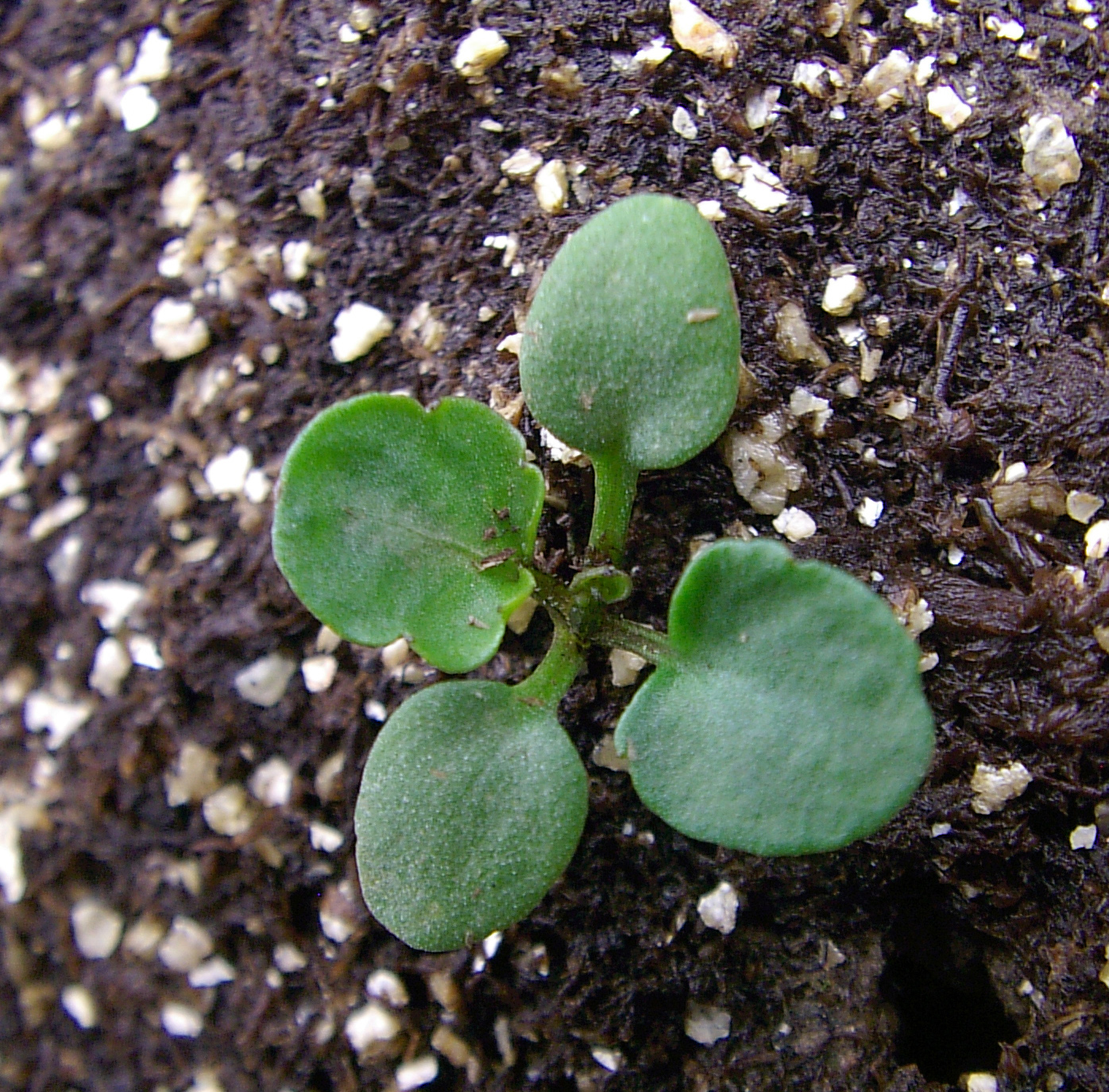
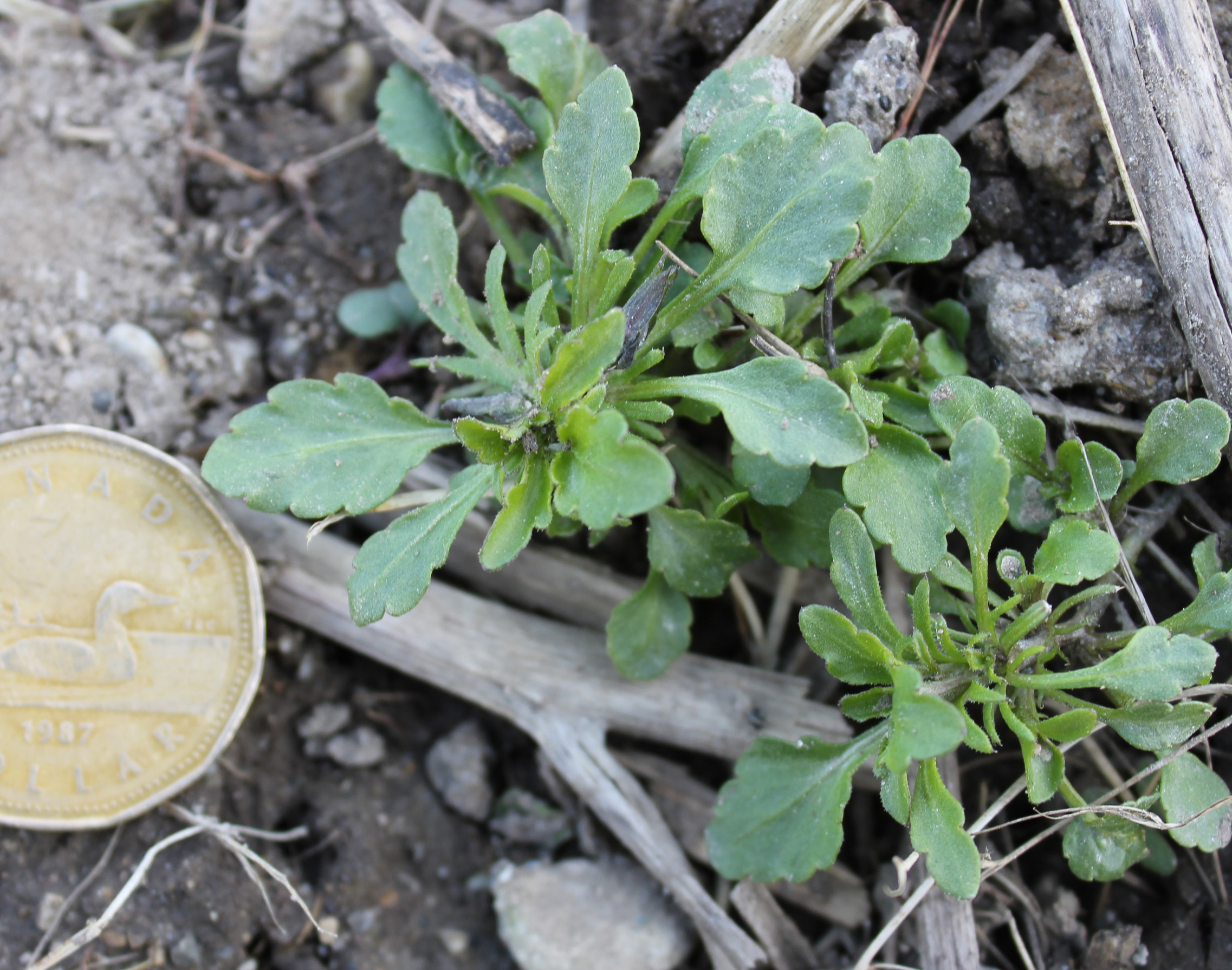
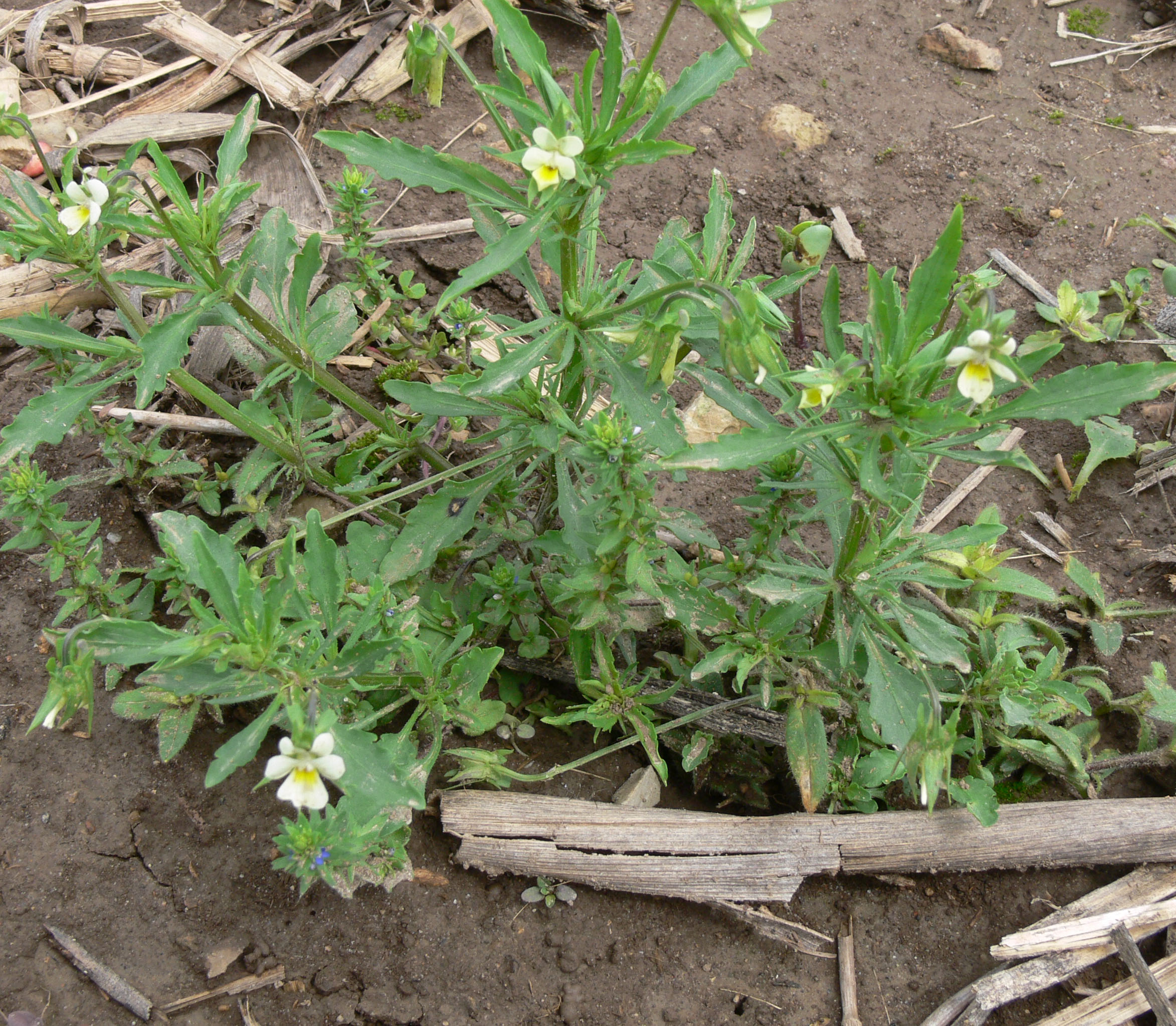
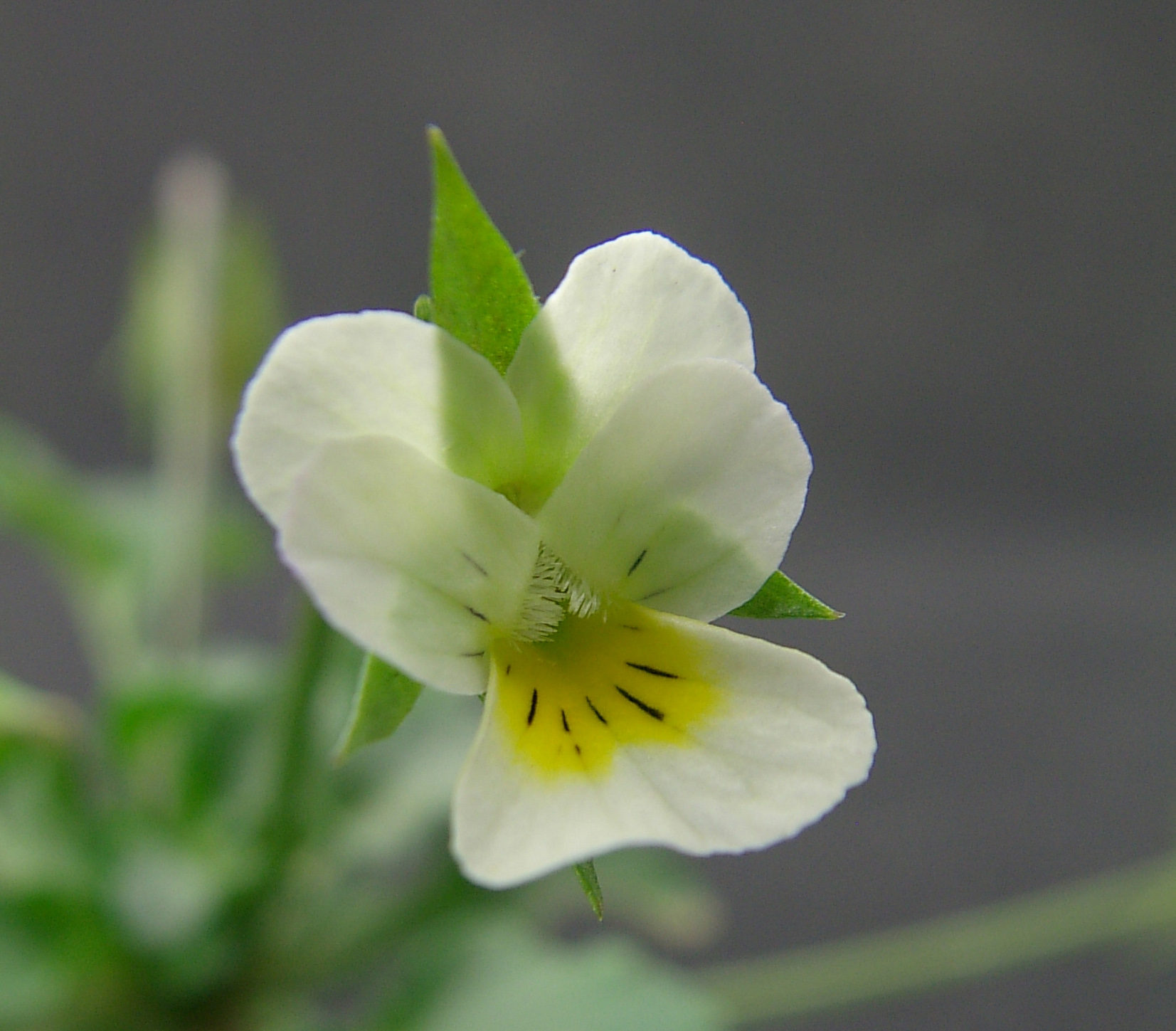
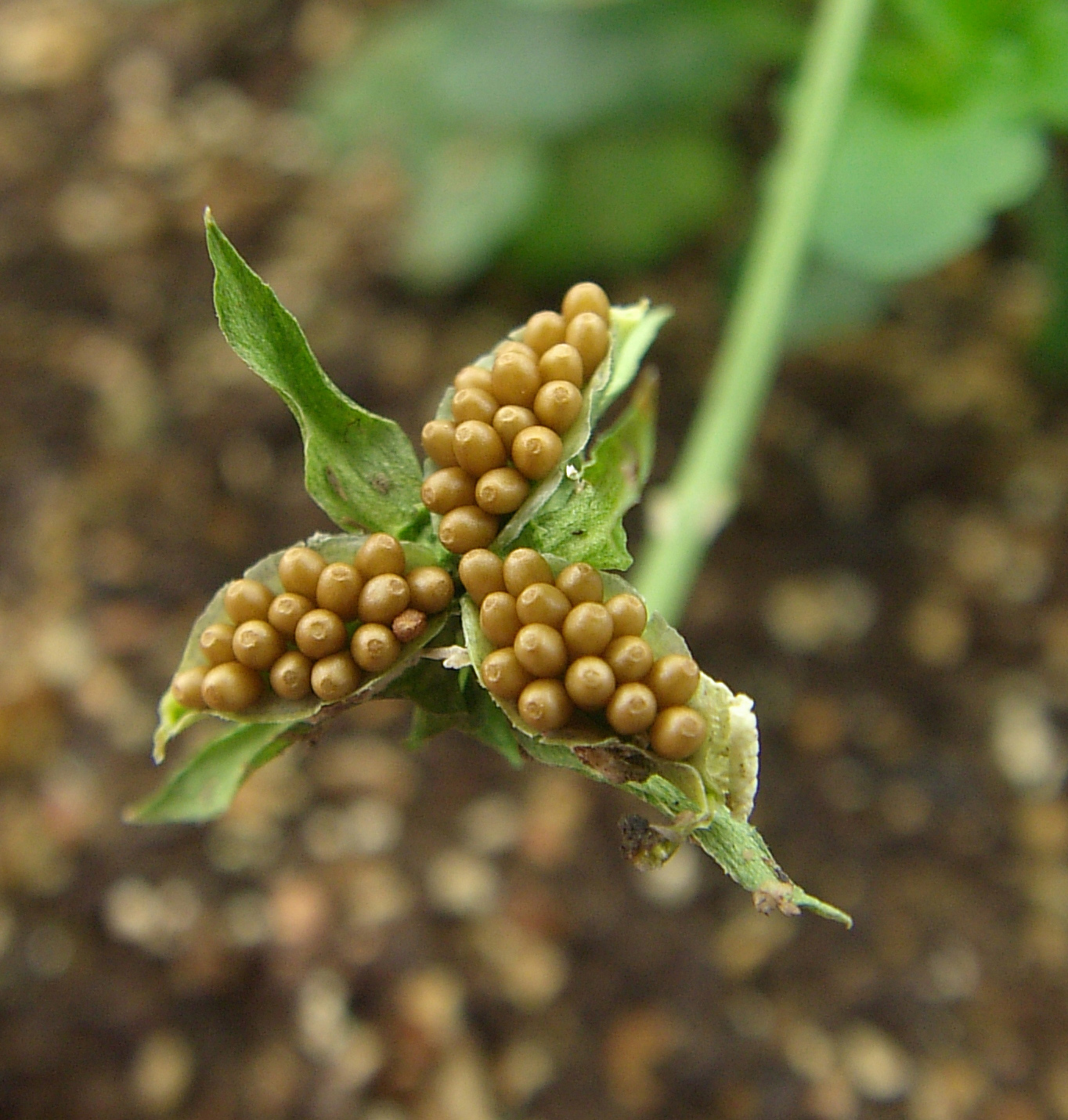
Updated: January 13, 2023
Published: January 13, 2023